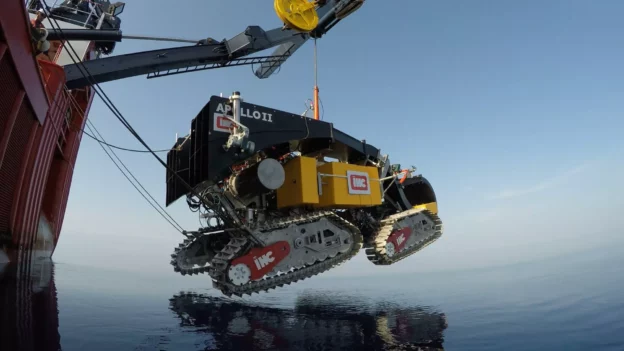A new study by marine geologist Sabine Haalboom has confirmed that mining activities on the ocean floor produce heavy dust clouds, which alter water quality and affect deep-sea ecosystems.
The negative impact of dust clouds
These “dust clouds” are caused by the removal of materials from the seafloor, which has a negative impact on marine life. negative impact on marine life. . Deep-sea ecosystems maintain and contribute to the regulation of the Earth’s climate, and their deterioration increases the likelihood of serious consequences.
The research conducted in the Clarion Clipperton Zone of the Pacific Ocean, used instruments to measure the number and size of particles suspended in the water. In addition, it was observed that a small portion of the removed material remains visible in the water for long distances, clouding the environment and generating unknown effects on marine life.
Mining also consumes energy and emits greenhouse gases, which contribute to global warming. The consequences of this activity could extend beyond the ocean, affecting the health of the planet.
Mining regulation and control
It presents a current and latent challenge due to international competition for seabed resources. Furthermore, the companies involved argue that the environmental impact is minimal, but studies show that the “dust clouds” generated create a negative impact on natural ecosystems.
These studies allow to further increase the safety and regulation of deep sea mining, to avoid the generation of “dust clouds” that cloud the ocean, stop marine life and continue to cause other irreversible damage.
Follow us on social networks and don’t miss any of our publications!
Inspenet.com YouTube LinkedIn Facebook Instagram X
Source and photo: Royal Netherlands Institute for Sea Research

